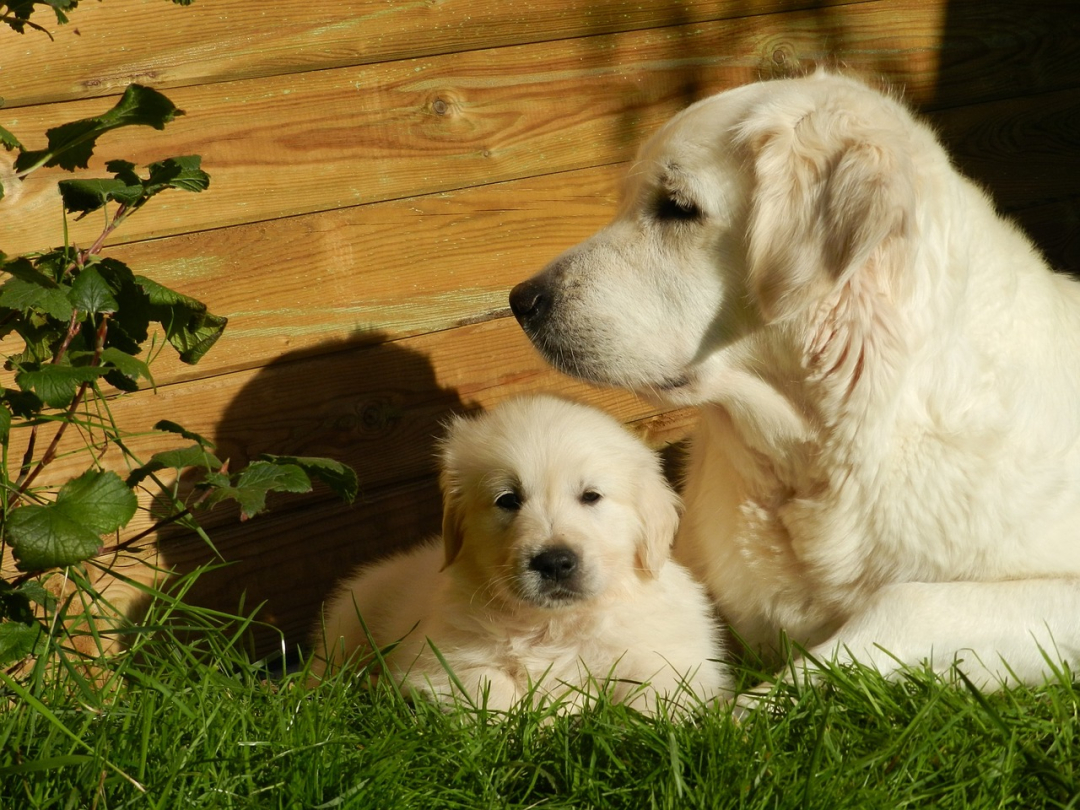
If you have recently acquired a puppy, you’re probably amazed at how fast he’s growing. A newborn puppy weighs 1-3 pounds and may even fit into the palm of your hand. A fully-grown large-breed dog can weigh 70 pounds or more and be much more than a handful. But when will your puppy finish growing? Keep reading to find out.
A puppy gains weight every day in the first few weeks of life. In fact, most puppies double in weight in the first couple of weeks. However, most breeders do not send puppies home to their forever homes until they are 6-8 weeks old. By this time, your puppy’s growth will likely have slowed down somewhat, so you may not see your puppy getting bigger every day.
There is no surefire way to guess how big a puppy will get. However, some experts say that you can estimate a dog’s adult weight by multiplying their weight at age 4 months by 2. So, if your puppy weighs 20 pounds at age 4 months, she may have an adult weight of around 40 pounds.
When your dog will stop growing will depend a large part on the breed and genetics. Every dog is different, but in general, small breeds usually stop growing by the time they are 6-8 months old. Medium breed dogs can take slightly longer to reach adult size and are typically done growing by age 12 months. Large and giant breed dogs can continue to grow up to 18 months of age. Some mastiff puppies reach adult size at age 24 months.
If you have a purebred puppy, it is somewhat easier to predict her growth curve. In addition to breed averages, the breeder can tell you what to expect based on their experience with your pup’s parents.
However, if you have a mixed breed dog, it can be a little tricky to predict the dog’s final size and weight, and also when the dog will stop growing.
One way to find out is to run your hand along your puppy’s rib cage. If you can feel knobs, this means she is not yet finished growing. The knobs are growth plates on the ribs and they indicate that your puppy’s bones are still growing.
Another way to tell if a puppy has growth spurts left in her is to look at her feet. If the feet appear too big for her body, it usually means the puppy has some growing left to do. On the other hand, if the feet look about the right size for the body, your puppy may be finished growing.
Most puppies have a growth spurt between 3 and 5 months of age. This is also the age when your puppy is teething and will chew on anything and everything. Puppy proofing your home can help protect your furry bundle of joy and keep your expensive home items safe as well.
Just because your puppy has stopped growing physically doesn’t mean he is not still a baby. Dogs reach emotional maturity at around 1 to 1.5 years of age. Small dogs mature faster mentally than larger dogs.
There could be various reasons for your puppy not growing at a normal rate. The most common one is genetics. But stunted growth or failure to thrive can sometimes be the result of health problems like intestinal worms.
Talk to your vet about possible causes for your puppy growing slowly. The vet may suggest upgrading to a higher quality dog food, changing the puppy’s primary protein source, feeding him smaller meals more often, giving him age-appropriate canine supplements, or other measures.
If your puppy has stopped eating, contact the vet without delay. He could have a gastrointestinal illness, dental problems, or loss of appetite due to anxiety.
No, feeding your puppy more will not make him bigger. On the other hand, it may lead to health problems like obesity. Overfeeding can also lead to rapid growth, especially in giant breeds, which can put stress on the puppy’s bones, leading to deformities.
Puppyhood is a critical stage of growth and good nutrition is vital to give your four-legged friend the best possible start in life. Give your pup a balanced diet that allows him to grow at a steady and healthy pace. Your dog’s vet can guide you on the best dog food for his age and size.
10 December, 2022